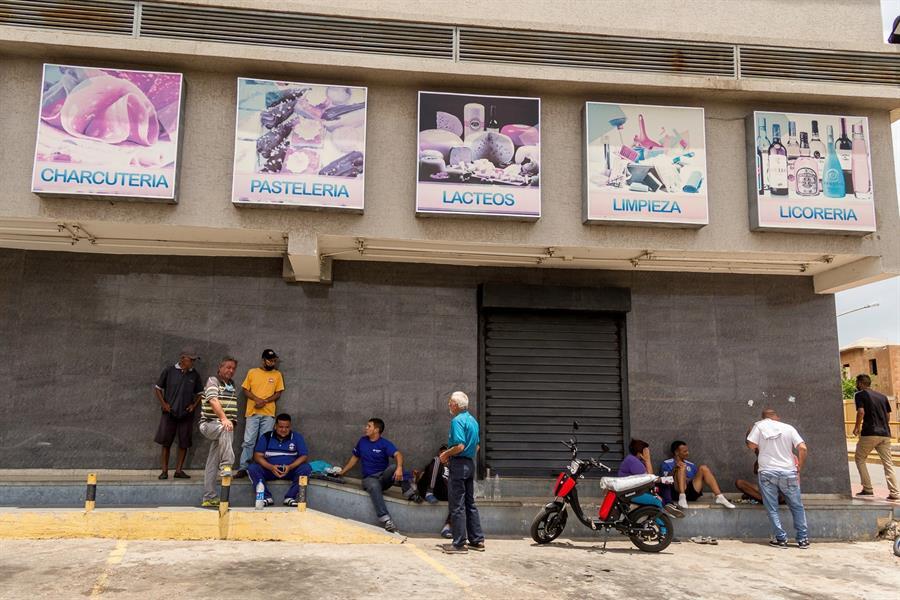Poverty and hunger in Venezuela leave a worrying legacy in the South American country: today’s children could die prematurely.

A report sponsored by the United Nations (UN) and reviewed by The Wall Street Journal (WSJ) revealed that 13% of children under the age of five suffer from stunted growth due to malnutrition- a situation it called “an irreversible catastrophe” for the South American country.
According to the report, Venezuela is suffering the fourth-worst food crisis in the world, only behind war-torn countries like Yemen, Afghanistan, and the Democratic Republic of Congo
“9.3 million people—about one-third of Venezuela’s population—lacked enough safe and nutritious food for normal human growth and development last year. It found that 13% of Venezuelan children under the age of 5 are stunted and that 30% are anemic,” says the study conducted by the Global Network Against Food Crises and the Food Security Information Network.
Already the tyrant Nicolás Maduro confessed that during the years he has been in power, Venezuela has lost 99% of its foreign currency income, thus demonstrating that the South American country also suffers from a war-like economy due to socialism. “In six years, we lost 99 % of the volume of income in foreign currency, in other words, of every 100 dollars or euros that the country obtained from the sale of oil in 2014, today it obtains less than one,” said Maduro.
Besides the destruction of the economy caused by the regime, Venezuela suffers from a shortage of food not only because of the drop in imports but also because of the shortage of gasoline to transport the basic products or to keep the industrial and agro-food network running.
Moreover, as the WSJ report points out, hyperinflation reached 9,500% last year, unemployment is high, and the monthly minimum wage has become a tragedy.
This month the minimum wage in Venezuela was below one dollar, which means that Venezuelans need some 230 minimum wages to be able to access food and basic products- a practically impossible mission.
However, although the country has become dollarized, the truth is that the majority of Venezuelans do not have access to dollars since salaries are still paid in Bolivars, the most devalued currency in the region.
The Living Conditions Survey (Encovi) 2019-2020 revealed that 79.8 % of the population (more than 22 million Venezuelans) are in extreme poverty, while 96.2 % are income poor.
Poverty has been increasing since 2014. In that year, extreme poverty was at 20.6% and has increased exponentially since then. In 2002, when Hugo Chávez was in his first term of office, this indicator stood at 22.4%. With Chavismo in power, the figure rose to 96.2%.
79.3% of Venezuelans cannot cover the basic consumption basket, and 68% consume less than 2000 calories per day. More than 70% of Venezuelan households report serious and moderate food insecurity.
Today’s children will die prematurely
Around 30% of children in Venezuela are chronically undernourished, according to the height-age indicator. This figure is comparable to African countries such as Nigeria and Cameroon, and the situation will have irreversible consequences in the long term.
The study reveals that today, children in Venezuela will die prematurely. Those born between 2015-2020 and still living in the country will have an average life expectancy of 3.7 years less than that predicted by the National Institute of Statistics (INE). This is due to the very poor conditions and decadent nutrition of the population.
Venezuela became one of the most impoverished and politically unstable countries in the world. It is currently second only to Nigeria in terms of poverty and inequality.
The humanitarian crisis caused by Chavismo has led six million Venezuelans to leave their country, hoping to find a way out of poverty. Meanwhile, a report by the Norwegian Refugee Council (NRC) placed Venezuela in fifth place among the world’s ten most forgotten crises of displaced persons.













